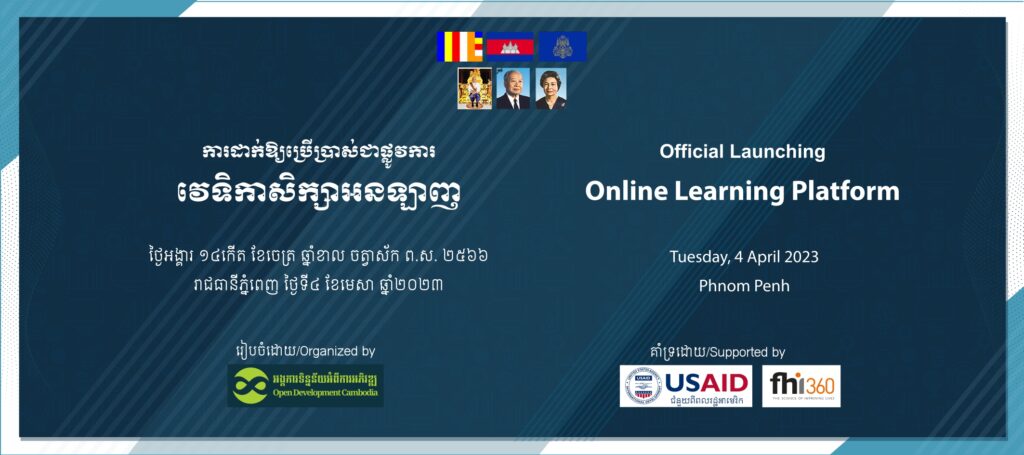
This workshop will gather around 45 people from a variety of organizations with experience in topics related to education, environmental and natural resources, gender, journalism, and legal aids, including CSS cluster members, CSOs/CBOs, INGOs, researchers, indigenous youth, and women groups. Participants from 10 to 15 people in the target provinces will be invited.
Objectives of the workshop
- To officially introduce the Learning Platform and how it was developed,
- To gather user feedback on the look and functionality and suggestions from all key stakeholders,
- To call for increased collaboration on data and resource sharing.
About the organizer: Open Development Cambodia (ODC), with financial support from USAID Cambodia through Family Health International (FHI 360) for the Civil Society Support (CSS) Project, has developed a new Learning Platform that serves as a free one-stop-shop knowledge-sharing portal, aggregating best practices, and lessons learned by the cluster members of the Civil Society Support (CSS) project.
Other Events
CDRI: Call for Abstracts for the Regional Symposium
CDRI is pleased to invite researchers working on the economic, social, and environmental challenges facing the Greater Mekong Subregion (GMS) to submit abstracts for a regional symposium. The symposium will be held on 21-22 November 2023 and will focus on \"The Greater Mekong Subregion’s Economic Recovery: The Uncertainty of External Events and Inclusive Development.\" If you are interested, please submit your abstract here: https://tinyurl.com/24hsc986 > Deadline: 15 October 2023 Details of the conference can be found here. For further information, please reach out to Mr. Kosal Nith at kosal.nith@cdri.org.kh.
Cyber Security and Data Literacy Training
The training course aims to: Raise awareness of the cluster member on cyber security as well as digital securityincluding password management, safe internet browsing, email security, and mobilesecurity. Enhance the understanding of data, data standards, and interactive visualization.
Korea Youth Summit 2025
Korea Youth Summit 2025, initiated by Youth Break the Boundaries, is set to take place in Seoul, South Korea. This summit has a powerful theme of the Cultural Heritage Preservation Project with the tagline Living Culture, Lasting Legacy. The summit aims to bring together young leaders from across the globe to discuss and work towards achieving the Sustainable Development Goals (SDG).